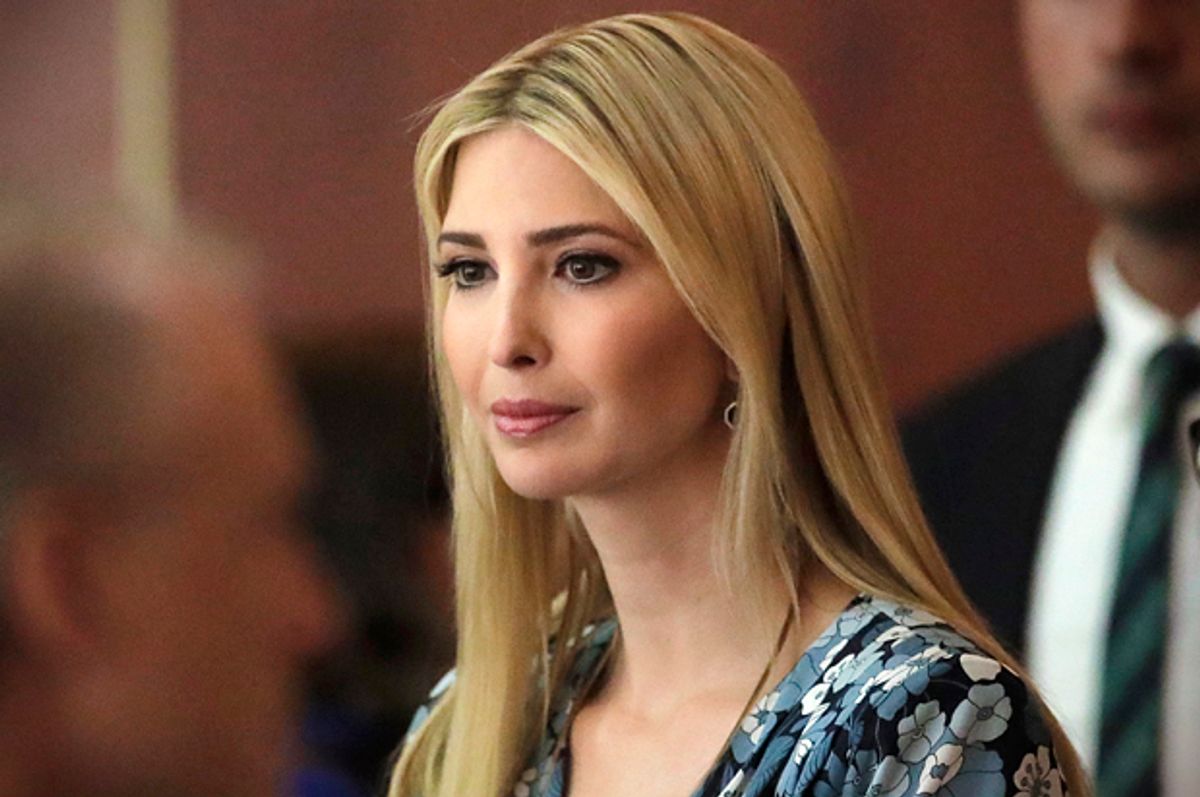On March 21, White House Press Secretary Sean Spicer made it certain to reporters who were concerned over Ivanka Trump's security clearances and having an office in the West Wing, that she had followed all necessary procedures to ensure proper ethical conduct in taking on her new role at the White House. At the time, Trump was not expected to be an official federal employee.
"Ivanka has taken on several measures to promote high standards of ethical conduct. Even though she’s not a federal employee, she’ll follow the restrictions that would apply if she were. She’s taking these steps with advice of counsel and in consultation with the Office of Government Ethics," Spicer said in the press briefing.
However a letter sent by director Walter M. Shaub Jr. from the Office of Government Ethics published on Monday clearly states that the White House never consulted the ethics office prior to making Trump an adviser to her father, President Donald Trump. It was not until a few days later on March 24, that the OGE reached out to Trump's lawyer and the White House ethics official to tell them that Trump should be a federal employee because she "appeared to meet the legal standard to be considered an employee covered by the executive branch ethics rules."
On March 29, it was formally announced that Trump would be taking on an official role in the White House, meaning she would be subject to disclosing financial holdings and either sell her assets where there is a conflict of interest, or recuse herself from those matters.
Shaub sent the letter to Sens. Elizabeth Warren, D-Mass., and Tom Carper, D-Del., after they expressed concerns of Trump's possible conflict of interests in taking on a White House role.
"With her newly recognized status as an executive branch employee, Ms. Trump is covered by the ethics laws and regulations applicable to executive branch employees," the letter states.
"With regard to your questions about the steps Ms. Trump must take to remedy any potential or actual conflicts of interest identified through her financial disclosures, the primary criminal conflict of interest statute prohibits senior White House appointees and other executive branch employees from participating personally and substantially in particular matters directly and predictably affecting their financial interests. 18 Among other things, this prohibition extends to the financial interests of companies in which they have ownership interests."



Shares